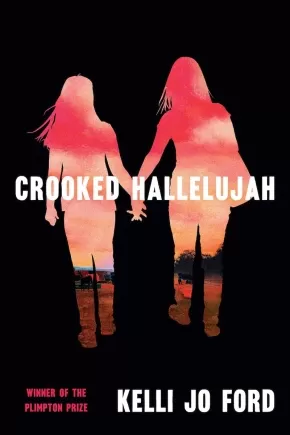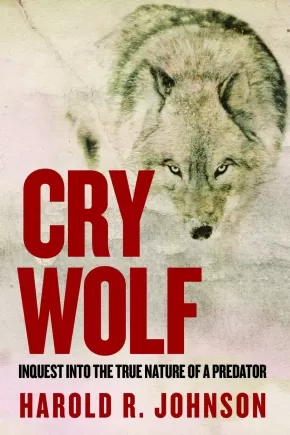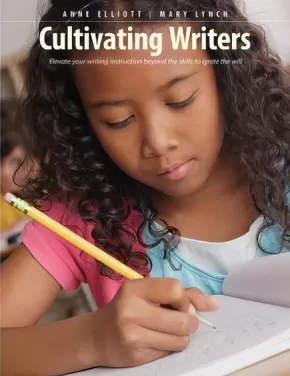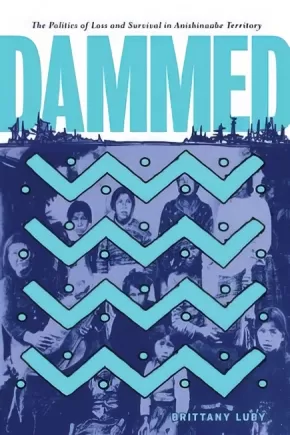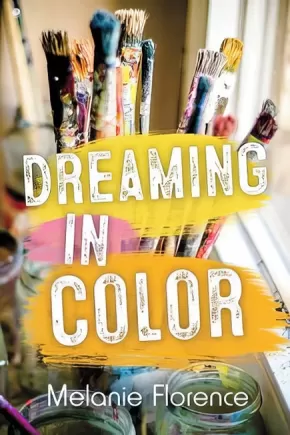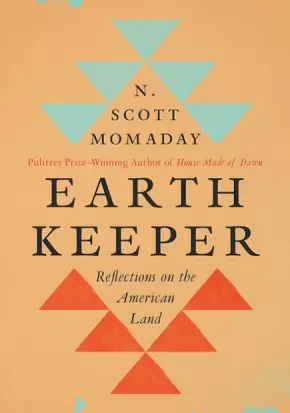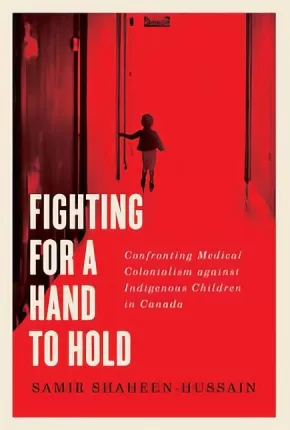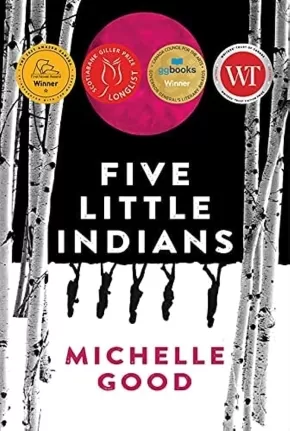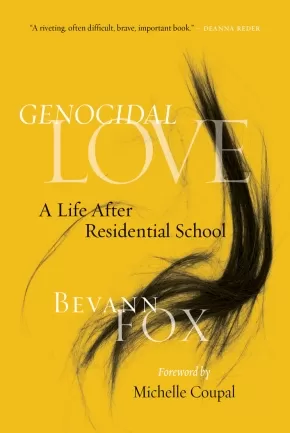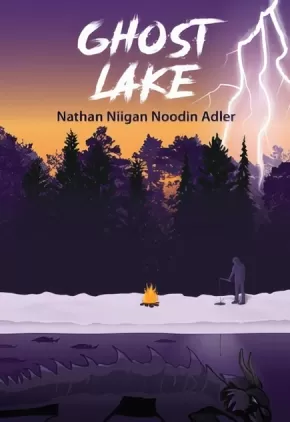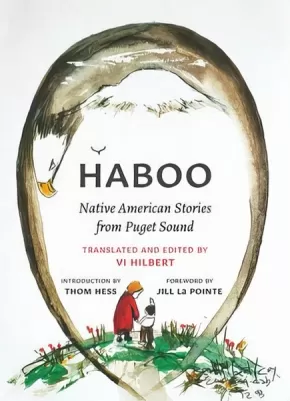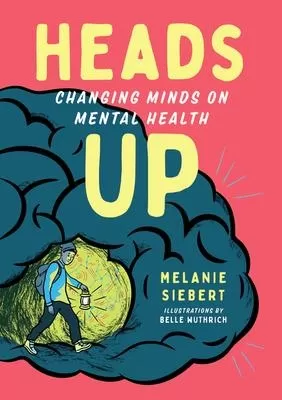Books
Synopsis:
It’s 1974 in the Cherokee Nation of Oklahoma and fifteen-year-old Justine grows up in a family of tough, complicated, and loyal women presided over by her mother, Lula, and Granny. After Justine’s father abandoned the family, Lula became a devout member of the Holiness Church – a community that Justine at times finds stifling and terrifying. But Justine does her best as a devoted daughter until an act of violence sends her on a different path forever.
Crooked Hallelujah tells the stories of Justine—a mixed-blood Cherokee woman— and her daughter, Reney, as they move from Eastern Oklahoma’s Indian Country in the hopes of starting a new, more stable life in Texas amid the oil bust of the 1980s. However, life in Texas isn’t easy, and Reney feels unmoored from her family in Indian Country. Against the vivid backdrop of the Red River, we see their struggle to survive in a world—of unreliable men and near-Biblical natural forces, like wildfires and tornados—intent on stripping away their connections to one another and their very ideas of home.
In lush and empathic prose, Kelli Jo Ford depicts what this family of proud, stubborn, Cherokee women sacrifices for those they love, amid larger forces of history, religion, class, and culture. This is a big-hearted and ambitious novel of the powerful bonds between mothers and daughters by an exquisite and rare new talent.
Reviews
"A book that you want to share with everyone you know and one that you are desperate to keep in your own possession. A masterful debut and a new and thrilling voice for readers across the globe." —Sarah Jessica Parker, on Instagram
"In “Crooked Hallelujah,” a collection of interwoven story-chapters, Kelli Jo Ford takes her readers on a compelling journey through the evolving terrain of multiple generations of women." —Diana Abu-Jaber, The Washington Post
Additional Information
304 pages | 5.50" x 8.25"
Synopsis:
“Required reading for anyone invested in our shared future with these powerful and complex creatures. ” —John Vaillant, author of The Tiger and The Golden Spruce
Growing up on a northern trap line, Harold Johnson was taught to keep his distance from wolves. For decades, wolves did the same for humans. But now this seems to be changing. In 2005, twenty-two-year-old Kenton Carnegie was killed in a wolf attack near his work camp. Part story, part forensic analysis, Cry Wolf examines this and other attacks, showing how we fail to take this apex predator seriously at our own peril.
Reviews
“A crucial and timely examination of our shifting relationship to the land in general and the Canis lupus in particular. ” —Eden Robinson, author of Son of a Trickster
“Insightful . . . . Johnson eloquently argues that Traditional Ecological Knowledge and the wisdom of Indigenous people can help us better understand the true nature of predators such as wolves. ” —Cristina Eisenberg, PhD, author of The Wolf’s Tooth and The Carnivore Way
Additional Information
160 pages | 5.00" x 7.50"
Synopsis:
The six essential steps for nurturing writers who have the will to write is the core of this practical book. Based on extensive classroom experience, the book explores how teachers can help students tap into their own life experiences, model the habits of a writer and make use of the tools of the trade. Strategies throughout the book show teachers how to create an environment that helps students see writing as a rewarding experience in and outside the classroom. Powerful real-life anecdotes and ready-to-use activities support this guide to developing classrooms full of thoughtful, passionate writers.
Educator Information
Key Features:
-
Cultivating Writers is dedicated to fostering the WILL to write, unlike most other books that focus on skills.
-
This book is based on effective classroom experience with lots of anecdotes and student examples.
-
The authors show teachers how to encourage students to tap into their own life experiences.
-
Both authors have worked with school boards in developing literacy documents and present routinely at American state reading conferences.
Additional Information
160 pages | 8.38" x 10.88"
Synopsis:
Dammed: The Politics of Loss and Survival in Anishinaabe Territory explores Canada’s hydroelectric boom in the Lake of the Woods area. It complicates narratives of increasing affluence in postwar Canada, revealing that the inverse was true for Indigenous communities along the Winnipeg River.
Dammed makes clear that hydroelectric generating stations were designed to serve settler populations. Governments and developers excluded the Anishinabeg from planning and operations and failed to consider how power production might influence the health and economy of their communities. By so doing, Canada and Ontario thwarted a future that aligned with the terms of treaty, a future in which both settlers and the Anishinabeg might thrive in shared territories.
The same hydroelectric development that powered settler communities flooded manomin fields, washed away roads, and compromised fish populations. Anishinaabe families responded creatively to manage the government-sanctioned environmental change and survive the resulting economic loss. Luby reveals these responses to dam development, inviting readers to consider how resistance might be expressed by individuals and families, and across gendered and generational lines.
Luby weaves text, testimony, and experience together, grounding this historical work in the territory of her paternal ancestors, lands she calls home. With evidence drawn from archival material, oral history, and environmental observation, Dammed invites readers to confront Canadian colonialism in the twentieth century.
Additional Information
256 pages | 6.00" x 9.00" | 2 maps, index, bibliography
Synopsis:
This guide is designed to educate non-Indigenous counsellors on the impacts of the assimilation policies that still affect Indigenous people and communities. Mainstream counselling approaches are integrated with Indigenous spiritual healing practices for Indigenous clients and their families who have been impacted by sexual abuse. Indigenous cultures contain many strategies to help those who have been traumatized, and sharing this traditional knowledge with service providers will assist in the understanding of how to incorporate cultural strategies in their practices.
This book provides exercises and handouts.
Reviews
"I found this guide to be of tremendous benefit as an important first step for reconciliation for social workers, counsellors and psychologists in the era of reconciliation. This guide provides a literature review combined with a detailed list of practice activities and case illustrations to show of how traditional healing ceremonies and traditions can be used effectively with counselling." — Donalda Halabuza, PhD, Faculty of Social Work, University of Regina
"Decolonizing the Healing Process from Sexual Trauma is a riveting journey into the acquired base of a skilled therapist. Educating those in the mental health field, McArthur gently offers culturally appropriate guidance when working with First Nations people who have experienced sexual abuse." — Cyndi Gray Williams, MSW, RSW, DVATI, RCAT, SEP, Registered and Licensed Art Therapist, Master’s Prepared and Registered Clinician, Somatic Experiencing (TM) Trauma Practitioner
Additional Information
66 pages | 6.00" x 9.00"
Synopsis:
Jennifer McCaffrey has been working hard on her art for years and is thrilled when she is accepted to a prestigious art school. The school is everything she always thought it would be, mostly. There is one group of kids who seem to resent her and say she only got in because of her skin color. Jen, who loves to create new pieces of artwork that incorporate her Indigenous heritage, finds herself a target when the group tells her to stop being “so Indian”. The night before the big art show at school, Jen’s beading art project is defaced. Jen has to find a way not to let the haters win.
Reviews
“Offers a mirror to the sometimes painful emotions and everyday experiences of Indigenous teens of mixed heritage. A rare and welcome reluctant reader title featuring an Indigenous protagonist.” — Kirkus Reviews
“Through the novel’s accessible language and short chapters, readers of all levels and backgrounds will be able to relate to and learn from Jen’s overcoming racial prejudice and intolerance. Readers will also gain a sense of empathy as they come to understand the struggles faced by Indigenous youth in contemporary society. Highly Recommended.” — CM: Canadian Review of Materials
Educator & Series Information
Recommended for ages 12+
Fry Reading Level: 3.4
Themes: racism, prejudice, standing up to bullies, cultural pride, Indigenous art
Dreaming in Color is a companion novel to the bestselling He Who Dreams (the main character is John's sister).
New, enhanced features (dyslexia-friendly font, cream paper, larger trim size) to increase reading accessibility for dyslexic and other striving readers.
Recommended in the Canadian Indigenous Books for Schools 2020/2021 resource list for grades 6 to 9 for English Language Arts.
This is an Orca Soundings book. Orca Soundings are short, high-interest novels written specifically for teens. These edgy stories with compelling characters and gripping storylines are ones they will want to read.
Additional Information
144 pages | 5.00" x 7.50"
Synopsis:
A magnificent testament to the earth, from Pulitzer Prize-winning novelist and poet N. Scott Momaday.
One of the most distinguished voices in American letters, N. Scott Momaday has devoted much of his life to celebrating and preserving Native American culture, especially its oral tradition. A member of the Kiowa tribe who was born and grew up on Indian reservations throughout the Southwest, Momaday has an intimate connection to the land he knows well and loves deeply.
In Earth Keeper: Reflections on the American Land, he reflects on his native ground and its influence on his people. “When I think about my life and the lives of my ancestors, I am inevitably led to the conviction that I, and they, belong to the American land. This is a declaration of belonging. And it is an offering to the earth.” he writes.
Momaday recalls stories of his childhood, stories that have been passed down through generations, stories that reveal a profound and sacred connection to the American landscape and a reverence for the natural world.
In this moving and lyrical work, he offers an homage and a warning. Momaday reminds us that the Earth is a sacred place of wonder and beauty; a source of strength and healing that must be protected before it’s too late. As he so eloquently yet simply expresses, we must all be keepers of the Earth.
Reviews
“Poets and storytellers have always reminded us of our spiritual connections to the land and the world around us — passed along through dreams, stories, memories, and mythologies. Scott Momaday skillfully continues this tradition in Earth Keeper, from which we can all learn and benefit.”— Robert Redford
“Earth Keeper is a prayer for continuity in these days of uncertainty. I cannot tell you why I loved this book, I can only tell you I wept my way through it. Each page brought me closer to myself, a self I had lost in the pandemic. We need Scott Momaday's calm, clear prose and stories. Words are medicine. There is wisdom in sharing what one knows, especially at a time when we know so little. ‘Let me say my heart,’ he says. And he does.”— Terry Tempest Williams, author of Erosion: Essays of Undoing
"Dazzling. . . . In glittering prose, Momaday recalls stories passed down through generations, illuminating the earth as a sacrosanct place of wonder and abundance. At once a celebration and a warning, Earth Keeper is an impassioned defense of all that our endangered planet stands to lose."— Esquire
“Wonder abounds in these pages. . . . Short chapters of prose that read almost like prayers to the natural world.”— Kirkus Reviews
“Short but satisfying. . . . Using lyrical, heartfelt language, [Momaday] looks back on a life lived close to nature, and on the joy that natural wonders have given him. . . . At a time when bad news is in plentiful supply, readers will find Momaday’s words refreshing and comforting in their sincerity.”— Publishers Weekly
"A profound reflection on humanity's relationship with its terrestrial home, the planet Earth."— Booklist
“A collection of short essays as multilayered and majestic as the landscape that has been present in everything that Momaday has written. . . . [A] poetic love letter to the Earth.”— Minneapolis Star Tribune
Educator Information
From the Author's Note: "This book is a very personal account, a kind of spiritual autobiography."
Additional Information
80 pages | 5.00" x 7.12"
Synopsis:
From the author of the YA-crossover hit The Marrow Thieves, a propulsive, stunning and sensuous novel inspired by the traditional Métis story of the Rogarou--a werewolf-like creature that haunts the roads and woods of Métis communities. A messed-up, grown-up, Little Red Riding Hood.
Broken-hearted Joan has been searching for her husband, Victor, for almost a year--ever since he went missing on the night they had their first serious argument. One terrible, hungover morning in a Walmart parking lot in a little town near Georgian Bay, she is drawn to a revival tent where the local Métis have been flocking to hear a charismatic preacher named Eugene Wolff. By the time she staggers into the tent, the service is over. But as she is about to leave, she hears an unmistakable voice.
She turns, and there Victor is. The same face, the same eyes, the same hands. But his hair is short and he's wearing a suit and he doesn't recognize her at all. No, he insists, she's the one suffering a delusion: he's the Reverend Wolff and his only mission is to bring his people to Jesus. Except that, as Joan soon discovers, that's not all the enigmatic Wolff is doing.
With only the help of Ajean, a foul-mouthed euchre shark with a knowledge of the old ways, and her odd, Johnny-Cash-loving, 12-year-old nephew Zeus, Joan has to find a way to remind the Reverend Wolff of who he really is. If he really is Victor. Her life, and the life of everyone she loves, depends upon it.
Reviews
“Empire of Wild will not let you go. Mix werewolves unlike you’ve ever read before with the mythos-expanding struggles of American Gods and blend with Cherie Dimaline’s newest heroine, the complex and wonderful Joan of Arcand, and the result is inventive, engrossing, poetic and thrilling. Empire is Dimaline’s most accomplished book yet.” —Eden Robinson, author of Monkey Beach and the Trickster trilogy
“Cherie Dimaline has written a wondrous and deeply felt novel about hypocrisy, power imbalance and the strange, dangerous space between reality and belief. Dimaline is one of the most honest and fearless writers of her generation, and Empire of Wild is an honest and fearless book.” —Omar El Akkad, author of American War
“A magical, electric novel that merges our modern urban world with the mythology of an uncolonized landscape. Dimaline’s descriptions are vivid and sordid and so, so alive. She creates a whole world of hope and hatred in the figure of a hot man in a ’79 Impala, and then takes you into the woods where a wolf dressed in a fine suit threatens to swallow you whole in disturbingly erudite language. The wonders of Indigenous values and their struggle to survive against insidious Western ideology and culture are framed in a wild adventure that cements Dimaline’s talents as a magical realist provocatrice.” —Heather O’Neill, author of The Lonely Hearts Hotel
“Empire of Wild is doing everything I love in a contemporary novel and more. It is tough, funny, beautiful, honest and propulsive—all the while telling a story that needs to be told by a person who needs to be telling it. The book feels like now, and we need more stories from Native communities to feel that way. She knows this community and this community will know she knows it when they read her, but it will resonate with so many more. Cherie Dimaline is a voice that feels both inevitable and necessary.” —Tommy Orange, author of There There
Educator Information
This book is available in French: Rougarou
Additional Information
320 pages | 5.14" x 7.99" | Paperback
Synopsis:
Field Notes for the Self is a series of dark meditations: spiritual exercises in which the poem becomes a forensics of the soul. The poems converse with Patrick Lane, John Thompson, and Charles Wright, but their closest cousins may be Arvo Pärt’s tintinnabulations—overlapping structures in which notes or images are rung slowly and repeatedly like bells. The goal is freedom from illusion, freedom from memory, from “the same old stories” of Lundy’s violent past; and freedom, too, from the unreachable memories of the violence done to his Indigenous ancestors, which, Lundy tells us, seem to haunt his cellular biology. Rooted in exquisitely modulated observations of the natural world, the singular achievement of these poems is mind itself, suspended before interior vision like a bit of crystal twisting in the light.
Reviews
“Here is a poet of whom one can say—quietly, simply, with gratitude—that highest of praises: the real thing.” —Jane Hirshfield, author of The Beauty
“Randy Lundy has entered the place where the masters reside…” —Patrick Lane, author of Washita
Educator & Series Information
This work is part of the Oskana Poetry & Poetics series. Publishing new and established authors, Oskana Poetry & Poetics offers both contemporary poetry at its best and probing discussions of poetry’s cultural role. Oskana is the Cree word for "bones," and it is used with the blessing of Elder Noel Starblanket. The name reflects a commitment to speak to the deepest and most urgent issues of our time, including environmental crisis and Indigenous justice.
Additional Information
96 pages | 5.50" x 8.50"
Synopsis:
An exploration of anti-Indigenous systemic racism in Canadian health care and the medical establishment's role in colonial genocide.
Launched by healthcare providers in January 2018, the #aHand2Hold campaign confronted the Quebec government's practice of separating children from their families during medical evacuation airlifts, which disproportionately affected remote and northern Indigenous communities. Pediatric emergency physician Samir Shaheen-Hussain's captivating narrative of this successful campaign, which garnered unprecedented public attention and media coverage, seeks to answer lingering questions about why such a cruel practice remained in place for so long. In doing so it serves as an indispensable case study of contemporary medical colonialism in Quebec.
Fighting for a Hand to Hold exposes the medical establishment's role in the displacement, colonization, and genocide of Indigenous peoples in Canada. Through meticulously gathered government documentation, historical scholarship, media reports, public inquiries, and personal testimonies, Shaheen-Hussain connects the draconian medevac practice with often-disregarded crimes and medical violence inflicted specifically on Indigenous children. This devastating history and ongoing medical colonialism prevent Indigenous communities from attaining internationally recognized measures of health and social well-being because of the pervasive, systemic anti-Indigenous racism that persists in the Canadian public health care system - and in settler society at large.
Shaheen-Hussain's unique perspective combines his experience as a frontline pediatrician with his long-standing involvement in anti-authoritarian social justice movements. Sparked by the indifference and callousness of those in power, this book draws on the innovative work of Indigenous scholars and activists to conclude that a broader decolonization struggle calling for reparations, land reclamation, and self-determination for Indigenous peoples is critical to achieve reconciliation in Canada.
Reviews
"Fighting for a Hand to Hold denounces with ferocity the utterly inhuman, decades-long practice of separating children from their families during emergency medevacs in northern and remote regions of Quebec. In a precise, compelling, and well-documented narrative, Samir Shaheen-Hussain challenges our collective understanding of systemic racism and social determinants of health applied to Indigenous communities most dependent on medevac airlifts and most impacted by the non-accompaniment rule. An eye-opening, tough, and essential book." — Dr Joanne Liu, pediatric emergency physician and former international president of Médecins Sans Frontières
"In Fighting for a Hand to Hold Samir Shaheen-Hussain exposes the social, cultural, and historical structures that allow medical colonialism to hide in plain sight as it harms generations of Indigenous children and their families. It is an unflinching analysis that should be required reading in every medical school in the country." —Maureen Lux, professor, Brock University and author of Separate Beds: A History of Indian Hospitals in Canada, 1920s-1980s
"The memories of the Inuit children I attended as a young interpreter at the Montreal Children's Hospital came flooding back to me. The sad face of a child looking up at me: nurses informed me that he was not speaking, but I immediately recognized the fear in his face, in his eyes. As soon as I spoke to him in Inuktitut, he looked at me in disbelief, but in the next moment his tears began to roll and I could only sound out the Inuit sound of love, 'mmph,' and tell him it would be all right, that his mom or a relative would be arriving soon. I felt for that child, and as he began to relax and open up, we had a lovely conversation in Inuktitut. He did not feel so alone in this strange place he had just been deposited in, as if he were cargo. To this day, I still feel for him. Throughout all these years, we all have been made to believe that this is how things should work. It was one of those things we stayed quiet about for decades. But no longer. We Inuit, we are a people. We love our children. Fighting for a Hand to Hold helps us understand the issues of colonization in the medical system that have vexed us as Indigenous peoples. Today, we Inuit are working to bring our health back to our communities. Healthy communities and families mean self-governance to us, and the decolonization process will happen." - Lisa Qiluqqi Koperqualuk, vice-president of international affairs, Inuit Circumpolar Council Canada
Educator Information
Foreword by Cindy Blackstock, afterword by Katsi'tsakwas Ellen Gabriel
Table of Contents
Figures | xiii
Foreword Cindy Blackstock | xv
Preface and Acknowledgments | xxi
A Note to Readers | xxix
Part One Above All, Do No Harm
Timeline | 3
Introduction | 7
1 Medevac Airlifts in Quebec and the Non-Accompaniment Rule | 16
2 The #aHand2Hold Campaign: Confronting a System | 27
Part Two Structural Fault Lines in Health Care
3 Social Determinants of Health: Equality, Equity, and Limitations | 47
4 Recognizing Systemic Racism: A Social Justice Approach | 66
5 Medical Culture and the Myth of Meritocracy | 90
Part Three Medical Colonialism and Indigenous Children
6 A Little Matter of Genocide: Canada and the United Nations Convention | 113
7 From the Smallpox War of Extermination to Tuberculosis Deaths in Residential Schools | 122
8 Experimental Laboratories: Malnutrition, Starvation, and the BCG Vaccine | 135
9 Cruel Treatment: Indian Hospitals, Sanatoria, and Skin Grafting | 150
10 Gendered Violence: Forced Sterilization and Coercive Contraception | 165
11 Breaking Up Families: Child Welfare Services, Mass Evacuations, and Medical Disappearances | 179
12 Oral Histories and the Narrative of Genocide | 207
Part Four The Structural Determinants of Health and Decolonizing Our Future
13 Capitalism and the Cost of Caring | 217
14 History Matters: Colonialism, Land, and Indigenous Self-Determination | 236
15 Decolonizing Health Care: Reparations before Reconciliation | 253
Conclusion | 271
Afterword Katsi’tsakwas Ellen Gabriel | 277
References | 283
Index | 315
Additional Information
360 pages | 5.98" x 9.01" | 4 maps, 8 illustrations | Hardcover
Synopsis:
Taken from their families when they are very small and sent to a remote, church-run residential school, Kenny, Lucy, Clara, Howie and Maisie are barely out of childhood when they are finally released after years of detention.
Alone and without any skills, support or families, the teens find their way to the seedy and foreign world of Downtown Eastside Vancouver, where they cling together, striving to find a place of safety and belonging in a world that doesn’t want them. The paths of the five friends cross and crisscross over the decades as they struggle to overcome, or at least forget, the trauma they endured during their years at the Mission.
Fuelled by rage and furious with God, Clara finds her way into the dangerous, highly charged world of the American Indian Movement. Maisie internalizes her pain and continually places herself in dangerous situations. Famous for his daring escapes from the school, Kenny can’t stop running and moves restlessly from job to job—through fishing grounds, orchards and logging camps—trying to outrun his memories and his addiction. Lucy finds peace in motherhood and nurtures a secret compulsive disorder as she waits for Kenny to return to the life they once hoped to share together. After almost beating one of his tormentors to death, Howie serves time in prison, then tries once again to re-enter society and begin life anew.
With compassion and insight, Five Little Indians chronicles the desperate quest of these residential school survivors to come to terms with their past and, ultimately, find a way forward.
Awards
- Amazon Canada First Novel Award
- 2020 Governor General's Literary Award for English-language fiction
- 2022 Canada Reads Winner
Educator Information
Winner of the 2018 HarperCollins/UBC Price for Best New Fiction, Michelle Good's Five Little Indians is told from alternating points of view of five former residential school students as they struggle to survive in 1960s Vancouver.
Additional Information
304 pages | 6.00" x 9.00"
Synopsis:
How can we heal in the face of trauma? How can we transform intergenerational pain into a passion for community and healing?
Presenting herself as “Myrtle,” residential school survivor and Indigenous television personality Bevann Fox explores essential questions by recounting her life through fiction. She shares memories of an early childhood filled with love with her grandparents—until she is sent to residential school at the age of seven. Her horrific experiences of abuse there left her without a voice, timid and nervous, never sure, never trusting, affecting her romantic relationships and family bonds for years to come.
This is the story of Myrtle battling to recover her voice. Genocidal Love is a powerful confirmation of the long-lasting consequences of residential school violence —and a moving story of finding a path towards healing.
Awards
- 2021 Indigenous Voices Awards winner for Published Prose in English: Creative Nonfiction and Life-Writing
Reviews
“A riveting, often difficult, brave, important book. ” —Deanna Reder, Chair, Department of Indigenous Studies, Simon Fraser University
“A riveting and courageous reflection. . . . Genocidal Love is unique in its detailed account of the often re-traumatizing effects of the legal and bureaucratic barriers of compensation programs predating the Truth and Reconciliation Commission. ” —Jesse Rae Archibald-Barber, editor of kisiskâciwan and co-editor of Performing Turtle Island
“Fox tears beauty from the jaws of genocide, daring to claim love beyond settler imaginings—love that nurtures decolonial futures and makes possible a more just world. ”—Sam McKegney, author of Magic Weapons and Masculindians
Educator Information
A forward from Michelle Coupal explains more about "Genocidal Love—a story that Bevann tells about herself outside the boundaries of what constitutes fiction and non-fiction".
Additional Information
256 pages | 5.00" x 7.00"
Synopsis:
In Ojibwe cosmology there are thirteen moons...
And in the pages of Ghost Lake are thirteen stories featuring an interrelated cast of characters and their brushes with the mysterious. Issa lives in fear of having her secret discovered, Aanzheyaawin haunts the roads seeking vengeance, Zaude searches for clues to her brother’s death, Garion wrestles with his sexual inclinations, Fanon struggles against an unexpected winter storm, Kylie fights to make it back to shore, Eadie and Mushkeg share a magical night, Tyner faces brutal violence, and Tyler, Clay, and Dare must make amends to the spirits before it’s too late. On the northern Ontario reserve of Ghost Lake the precolonial past is not so distant, and nothing is ever truly lost or destroyed. Because the land remembers.
Awards
- 2021 Indigenous Voices Awards winner for Published Prose in English: Fiction
Reviews
“Adler gifts us with this collection of intense life and death stories that straddle the worlds of the everyday and the fantastic. These stories challenge the notion of default reality and Adler crafts them with a deft hand.”—Michelle Good, author of Five Little Indians
“Ghost Lake is the border to all things known—but not in the way wider society conceives them: there is no lighthouse imposing its dichotomy on the darkness. It invites recovery and connection from its characters beautifully; story, memory, and relationship build the landscape for them to walk on. The people of Ghost Lake move through experiences with a curiosity and bravery that I hope all readers have—where there are no experts to place rules on a community’s desire to remember. We need more collections like this.”—Tyler Pennock, author of Bones
“A memorable, necessary read, Nathan Adler’s remarkable collection Ghost Lake delves into the life-changing passages of love and loss, revenge and redemption, survival and discovery. His vital, authentic characters journey through a world in which the boundary between the so-called real and the illusory—the realm of mysteries, spirits, and myths—is itself revealed to be the illusion. These imaginative, expertly crafted stories are guaranteed to illuminate and stir, to challenge and entertain.” —Daniel Scott Tysdal, author of The Writing Moment: A Practical Guide to Creating Poems
Educator Information
An interconnected collection of stories set on the fictional Northern Ontario Reserve of Ghost Lake, featuring a cast of interrelated characters and their encounters with the supernatural and other phenomenon, with themes ranging from love, loss, and relationships, to the meaning of monstrosity, violence, tragedy, and justice.
Ghost Lake is the sequel to Nathan Adler's debut horror novel, Wrist.
Pyromaniacs, vigilantes, mysterious phenomena, prehistoric beasts, cryptid species, grave robbers and ghosts… the stories of Ghost Lake feature a cast of interrelated characters and their brushes with the supernatural, creatures of Ojibwe cosmology, the Spirit World, and with monsters, both human and otherwise. Nathan Niigan Noodin Adler shows us that the precolonial past is not so distant, that history informs the present, and nothing is ever truly lost or destroyed, because the land remembers.
Additional Information
320 pages | 5.50" x 8.00"
Synopsis:
The stories of the Lushootseed-speaking people of Puget Sound represent an important part of the oral tradition by which one generation hands down beliefs, values, and customs to another. Vi Hilbert grew up when many of the old social patterns survived and everyone spoke the ancestral language.
Haboo, Hilbert’s collection of thirty-three stories, features tales mostly set in a time before the world transformed. Animals, plants, trees, and even rocks had human attributes. Prominent characters like Wolf, Salmon, and Changer and tricksters like Mink, Raven, and Coyote populate humorous, earthy stories that reflect foibles of human nature, convey serious moral instruction, and comically detail the unfortunate, even disastrous consequences of breaking taboos.
Beautifully redesigned and with a new foreword by Jill La Pointe, Haboo offers a vivid and invaluable resource for linguists, anthropologists, folklorists, future generations of Lushootseed-speaking people, and others interested in Native languages and cultures.
Reviews
"The wisdom and teachings found in Haboo continue to offer a . . . resource that highlights a way of being in the world that we have strayed from, and they remain as relevant today as they have been for generations." - from the foreword by Jill La Pointe
Additional Information
232 pages | 6.50" x 9.00" | 20 b&w illustrations, 1 map | Translated and Edited by Val Hilbert, Foreword by Jill La Pointe, Introduction by Thom Hess | 2nd Edition
Synopsis:
Featuring real-life stories of people who have found hope and meaning in the midst of life’s struggles, Heads Up: Changing Minds on Mental Health is the go-to guide for teenagers who want to know about mental health, mental illness, trauma and recovery. For too long, mental health problems have been kept in the shadows, leaving people to suffer in silence, or worse, to be feared, bullied or pushed to the margins of society where survival is difficult.
This book shines a light on the troubled history of thinking about and treating mental illness and tells the stories of courageous pioneers in the field of psychiatry who fought for more compassionate, respectful and effective treatments. It provides a helpful guide to the major mental health diagnoses along with ideas and resources to support those who are suffering. But it also moves beyond a biomedical focus and considers the latest science that shows how trauma and social inequality impact mental health. The book explores how mental health is more than just “in our heads” and includes the voices of Indigenous people who share a more holistic way of thinking about wellness, balancing mind, body, heart and spirit. Highlighting innovative approaches such as trauma-informed activities like yoga and hip-hop, police mental health teams, and peer support for youth, Heads Up shares the stories of people who are sparking change.
Educator Information
Recommended for ages 12+.
Keywords / Subjects / Themes: youth mental health, mental health, anxiety, recovery, ending stigma, Indigenous youth.
Additional Information
192 pages | 6.00" x 8.50"

